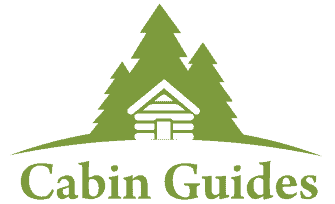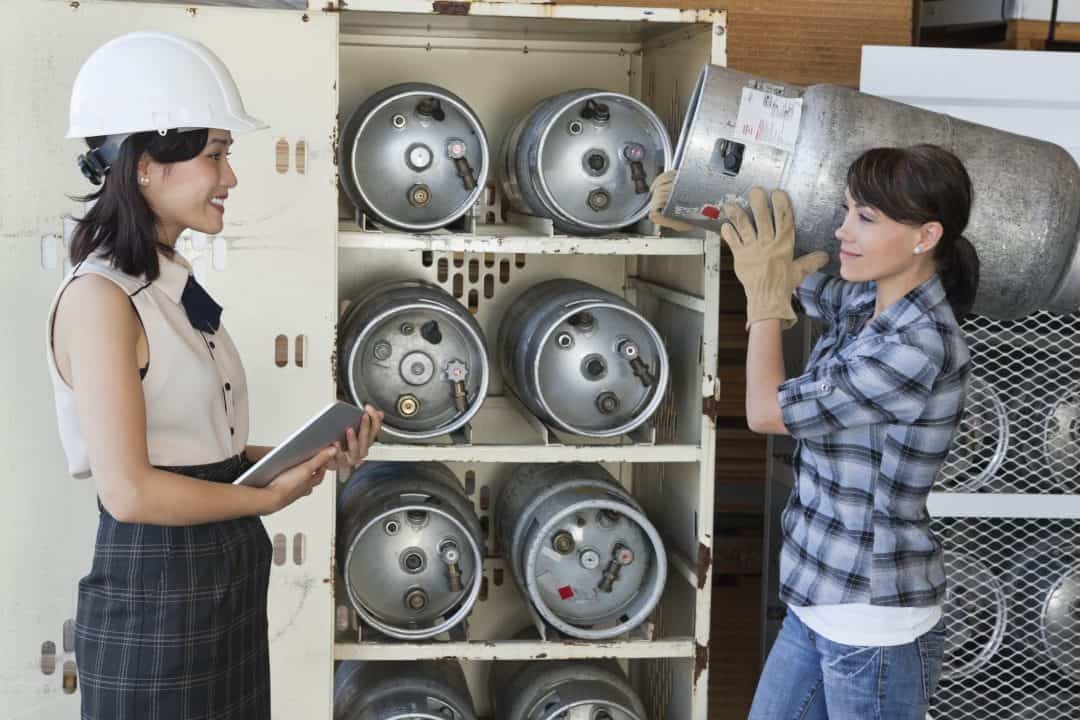Most off-grid cabin owners at one point during their planning or stay, will be left with the question “Is it safe to use a propane stove in my cabin?”. This is because they don’t have access to electricity, or they want to limit their usage. I’ll start off by saying that using propane for cooking is a great alternative to using electricity.
Though it is a good alternative, there’s a lot of safety precautions which come into play when using propane for cooking. In this article, I’ll be explaining a couple of ways which you can stay safe whilst using propane, along with some useful tips.
Using Propane to save Electricity
Ovens use a huge amount of electricity. If you’re using a generator – this isn’t ideal as you’ll max out the wattage quick. This results in you having to budget the rest of your power. If you’re using a solar power system, you’ll probably run out of power before you can even cook-up a good meal.
Budgeting your electricity is never fun. When you’re staying in a cabin, you don’t want to have to worry about not going over your limit. This is your time to relax and
Though propane is not as safe as electricity, it is definitely a good alternative source of power to electricity. Another good way to reduce the amount of electricity used for cooking is by utilizing a smaller oven. This will require less power as it requires less power to heat.
How to use a Propane Stove Indoors safely
One of the main reasons why using a propane stove indoors could be dangerous, is the fact that Carbon Monoxide is produced. This is produced when burning occurs. Propane stoves often produce a lot of carbon monoxide – which can have negative affects on humans. Carbon monoxide can cause us to become extremely sick, inducing headaches, nausea, and vomiting.
Because of this you should look to purchase stoves which have an Underwriters Laboratories Certification. These will often be prevalent on owner manuals of the products. This certificate means that the stove is suitable for indoor use – if it doesn’t have this then avoid using the appliance or do further research on it.
There are a few ways to can make using a propane stove indoors safer:
- Ensure that the stove is always kept clean: When cooking, grease may drip into the burners which will then burn and produce more smoke. This is especially true with grills – which is why I’ll always recommend keeping grills outdoors. You should do regular checks when you’re not using your stove – to make sure that it’s clean.
- Keep the area ventilated: Whenever you’re cooking you should ensure that the area is well ventilated. This means that windows should be open – possibly doors. If possible, you should install vent hoods.
- Minimize cooking time: What I mean by this, is try not to cook for extended periods of time. This means don’t have it running for unnecessarily long periods of time. If cooking indoors – try not to cook massive meals, leave those for outdoor cooking.
Use a Gas Oven with LP Conversion
When using a generator, you’ll have to budget your power – because of this I’d recommend you purchase a standard gas oven and range. You should ensure that is has the capability to convert natural gas into propane. You’ll then need a gas to propane conversion kit.
Cook Outside the Cabin on a Grill
This is the most simplistic option however it’s not viable for everyone. When cooking outside, you won’t have to worry about ventilating carbon monoxide and minimizing cooking time, you can enjoy your day knowing that you’re safe.
Not only is this a very cheap alternative, but it can be great fun especially if you’re with your friends of kids. Everyone loves a good barbeque. This way, you don’t have to use any electricity.
When staying in a cabin I do about 65% of my cooking, outdoors. It allows me to be more flexible with my cooking – no worrying about my electricity, risks of carbon monoxide, time management. The only problem with this option is that it’s not always possible due to the weather. If the weather is cold or wet, cooking outside isn’t an option.
Store tanks outside if possible
Instead of purchasing small propane canisters every month, I store one large tank which will usually last me a year. I get it refilled every year, or as much as I need depending on my usage. This means that I don’t have to keep worrying about my propane storage and hauling small tanks with me every visit.
One tip I have for you is to store your tank, or canisters outside – regardless of their size. Have a gas hose run from the tank/canister into your home and to your cooker. This is because propane tanks will sometimes leak a little bit, and if this happens inside your house… things could become dangerous. Therefore, it’s better to just store your propane outside if possible.
Turn off the valve on the tank when you’re not cooking
Whenever you’re not using your propane tanks, you should always ensure that you turn off the valve. If you’ve got your tank indoors then this is a MUST, whereas when it’s outdoors you can get away with forgetting to turn off the valve every now and then.
Install a Carbon Monoxide Detector above your oven or stove
When using propane indoors, its’s a good idea to install a carbon monoxide detector above your cooker. This is so that you’ll be able to detect if as a build-up of carbon monoxide occurs.
This is a good idea as carbon monoxide buildup is a dangerous situation, which should be treated as soon as possible. From just a small amount of carbon monoxide you can run into numerous health problems. Carbon monoxide can cause us to become extremely sick, symptoms include headaches, nausea, and vomiting. This is something you want to avoid at all costs.
Such detectors work similarly to a normal smoke detector. They can be planted on ceilings or walls and will sound an alarm when they detect a dangerous amount of carbon monoxide. After the alarms sounds off, you should turn off any cooking appliances you’re using and ensure that the valve on your tank is closed. Do this quickly before you evacuate your cabin.
Conclusion
If you’ve got any questions or believe that I’ve left something out, leave a comment below. Feel free to say hello or give me your thoughts on the article.
My name is Eugene Thornhill. I'm an outdoor enthusiast who loves nothing more than being one with nature. I've lived in numerous outdoor homes and even constructed my own. Living off-grid is something I'm very familiar with, more so than living in the city. For many years I've dealt with the many problems of living off-grid. It's time to pass on my knowledge through Cabinguides.


